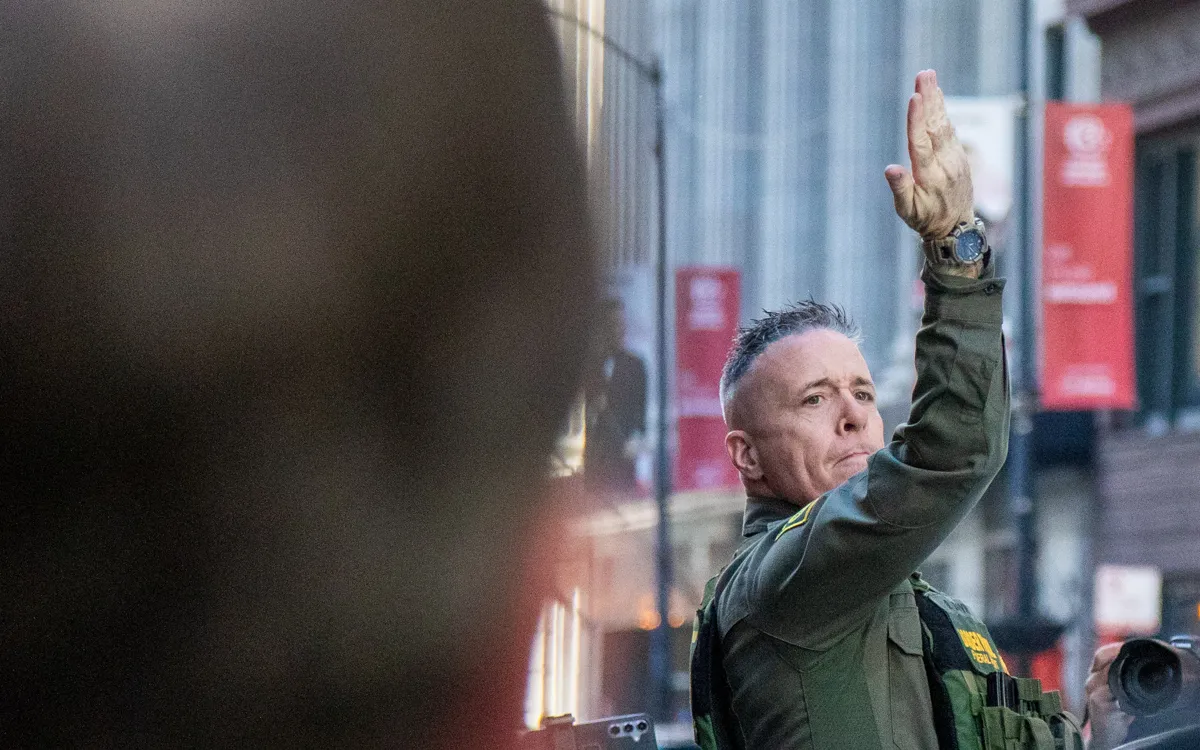
On Tuesday, a federal judge issued a stern warning to the agent overseeing the Trump administration’s immigration crackdown in Chicago. U.S. District Judge Sara Ellis demanded daily reports from Border Patrol chief Gregory Bovino after federal authorities failed to comply with her previous order to limit the use of riot-control weapons against peaceful protesters, journalists, and bystanders.
During the court hearing, Judge Ellis emphasized, “Kids dressed in Halloween costumes walking to a parade do not pose an immediate threat to the safety of a law enforcement officer.” She firmly stated that such circumstances do not justify the use of riot-control weapons against them. This comment came in response to recent events where federal agents deployed chemical irritants on Chicago residents for four consecutive days, including incidents in Old Irving Park and Avondale.
Witnesses reported that the incident in Old Irving Park occurred just before a Halloween parade, causing distress among families. Judge Ellis highlighted the disruption this caused, noting, “Old Irving Park is a fairly quiet neighborhood with a lot of families, a lot of single-family homes. These kids, you can imagine their sense of safety was shattered on Saturday.” She expressed concern over the long-term psychological impact of such actions on the community.
Just last week, Bovino was captured on video using tear gas against a crowd in Chicago’s Little Village neighborhood. Attorneys in an ongoing lawsuit aimed at protecting First Amendment rights claimed that Bovino deployed the tear gas “without justification.” Block Club Chicago, among other media groups, is a plaintiff in this lawsuit.
These tear-gassing incidents followed a temporary restraining order issued by Judge Ellis earlier this month. The order mandates strict guidelines for immigration enforcement in the Chicago area, referred to as “Operation Midway Blitz.” Under this order, agents are prohibited from using riot-control weapons like pepper-spray bullets and tear gas unless there is an immediate threat. Moreover, immigration authorities must provide two verbal warnings before using chemical irritants and must wear body cameras if they have been issued them. Agents who are not undercover are also required to display their badges or IDs.
Despite these regulations, reports indicate that federal agents have repeatedly violated these guidelines over the past two weeks. At the beginning of the hearing, Judge Ellis reiterated the court order, stating that it wasn’t clear whether it was ignored or simply not read by immigration agents.
Judge Ellis highlighted troubling instances, such as reports of agents pushing a woman in Little Village to the ground and applying excessive force. “There was no warning given,” she said, echoing concerns raised by the plaintiffs. She noted that if warnings were issued, there was insufficient time for individuals to comply before the deployment of weapons.
When questioned about the actions of his agents in Little Village, Bovino refrained from defending or denying their conduct. He stated, “I believe that each situation is dependent on the situation,” expressing a need for more information before making a judgment.
Judge Ellis insisted that all agents equipped with body cameras must use them in accordance with her order. Bovino acknowledged that while 99% of agents have cameras, distributing the equipment has been challenging. He admitted he does not currently have a body camera or training for its use, to which Ellis responded that he should have one by the end of the week, stating, “You’re in charge. I suspect you can probably get one.”
As the hearing proceeded, Ellis expressed her intention to see Bovino daily during the ongoing immigration operation for updates on any incidents that arise. He confirmed his understanding and compliance with her request.
Later in the hearing, attorneys for the plaintiffs raised concerns about modifying the temporary restraining order to completely ban the use of tear gas. Judge Ellis neither granted nor denied this motion but expressed confidence that Bovino comprehends her position on the matter, stating, “I don’t know that we’re going to see a whole lot of tear gas being deployed over the next week.”
Federal officials have previously defended the use of tear gas and other riot-control weapons, claiming they only act in response to threats or violent attacks. However, there has been a lack of substantial evidence supporting these claims. The recent incidents, including one that involved detaining several individuals at a local Home Depot and laundromat, have raised significant public outcry.
As tensions between immigration agents and community members continue to escalate, the federal government remains under scrutiny for its tactics. Reports of excessive use of tear gas and pepper spray have surfaced, with incidents occurring in various neighborhoods, including Cicero and Lakeview. The ongoing legal battle aims to address these issues and ensure the protection of First Amendment rights.
With nearly 3,000 arrests reported in Chicago and an average of 60 arrests per day, the situation remains fluid. However, the lack of detailed data from Homeland Security, Customs and Border Protection, and ICE complicates independent verification of these statistics. As the court proceedings unfold, the impact of these immigration enforcement tactics on communities in Chicago continues to be a pivotal issue.